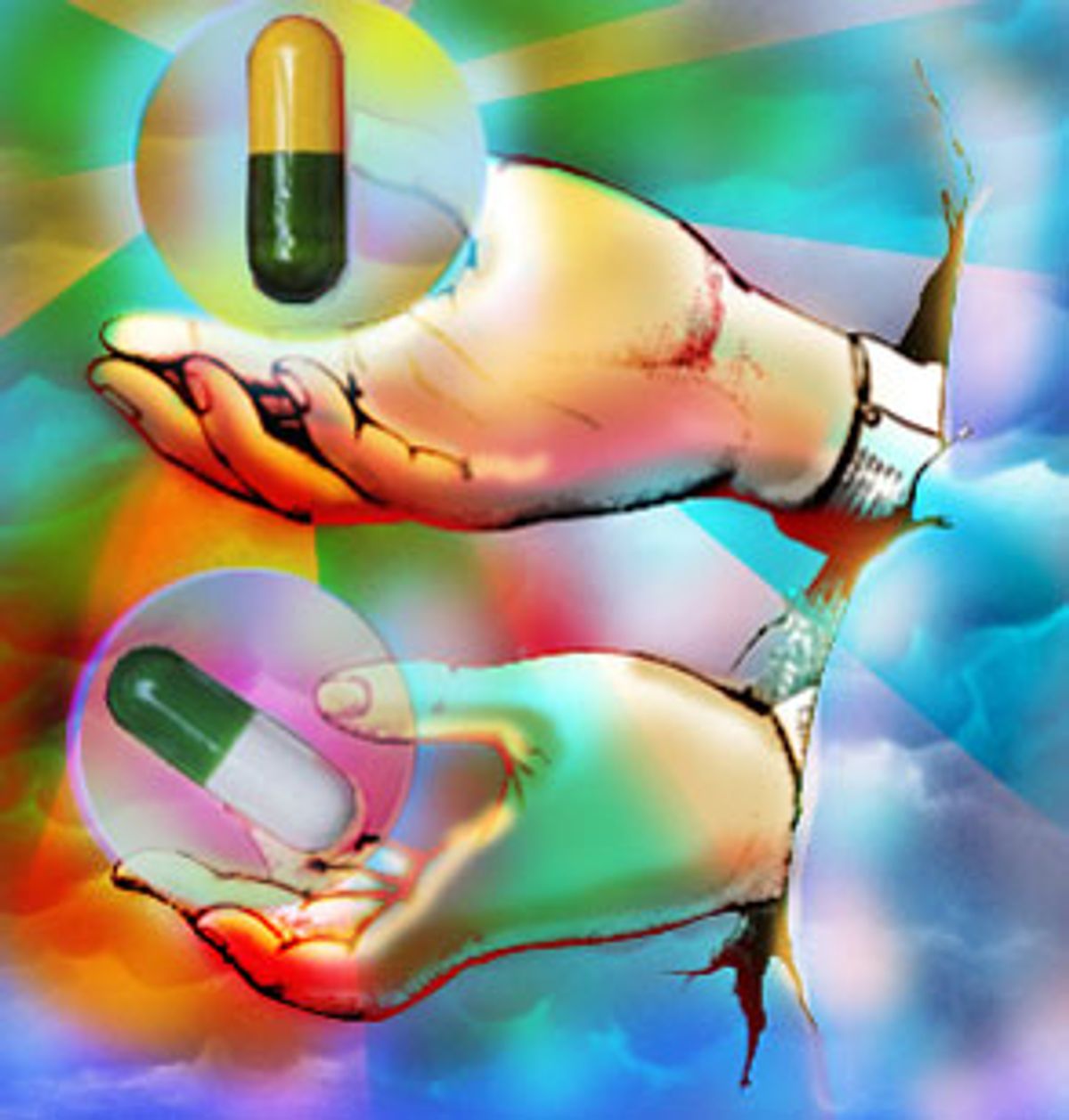Dear Buzzed,
After an accident, I spent several months in physical therapy and on painkillers. I have fully recovered, but I'm having a very, very hard time ending my use of painkillers. I have resorted to ordering them over the Internet, and even purchasing them from another accident victim. Each time I try to quit cold turkey I get as sick as a dog and relapse, while tapering off leads to even more use. What can I do?
Addicted to Painkillers
Dear Addicted,
You have experienced both the good and the bad sides of narcotic analgesics, since that is almost certainly what your doctor gave you after your accident. We are really glad that you wrote, because you represent a large group of people who feel embarrassed about their use of narcotics. You shouldn't be. These are good drugs when taken properly.
Morphine and codeine are the "natural" members of this group because they come from the opium poppy. Meperidine, methadone and oxycodone are the synthetic members, and heroin is the most infamous, known more for its addictiveness than its ability to kill pain. Because these medications are the most effective analgesic (painkilling) drugs that exist, doctors frequently prescribe them after surgery or serious injury.
All of these drugs work in the same way. As you probably know, your brain produces its own endorphins -- morphinelike compounds that regulate the functions of cells all over the body. Endorphins can calm you, decrease the sensation of pain and help control your breathing and digestion. Narcotics substitute for your own endorphins by binding to the cells that are normally stimulated by these compounds. So when you take your painkiller, you are stimulating a system that already exists in your body to minimize pain. Narcotics also stimulate the center in your brain that generates the feeling of pleasure, which is why they are addictive.
So why do you feel so rotten when you try to stop? Narcotics work because they affect the cells more than your own endorphins do; in response, your body adapts and tries to return things to normal by reducing the cells' sensitivity to both the painkilling drugs and the natural endorphins. That's how what is called tolerance to a particular drug develops.
The feeling you get when you stop is called withdrawal, and it may be responsible for most of your woes. Your digestive tract offers a good example of this process. Opiates slow the movement of material through the intestine, so it's likely you suffered from constipation at first. Since you have been taking a painkiller for quite a while, your body has probably adapted to this retarding effect by speeding things up, leading to relatively normal bowel function even while you're taking the drug.
When you stop ingesting the drug, this speeding-up effect remains, but is no longer balanced by the slowing influence of the drug. The result: stomach cramps and diarrhea. The other sensations you experience when you stop -- chills, achiness, flulike symptoms and increased sensitivity to pain -- arise because many parts of your body have reduced their sensitivity to your own endorphins. When you feel compelled to keep taking the drug to avoid the unpleasant effects of withdrawal, you are experiencing a physical dependence -- which can happen even when you take the drugs as prescribed by a doctor.
Does this mean you are addicted? Not necessarily. Physical dependence is one of the key criteria used to determine addiction, but another very important one is your drug-use pattern. Are you losing control over how you take the drug? You don't say how much or how frequently you are ingesting painkillers, but clearly it is more than your doctor prescribed because you are buying somebody else's drugs -- which, by the way, is illegal. The fact that you are willing to go to such lengths to get the drugs suggests that you may be headed down the road to addiction.
The best way to get out of this mess is to do it step by step. Don't try going cold turkey. If you taper the dose down bit by bit, the withdrawal symptoms should be manageable. You need to go to your doctor and discuss pain management strategies, and have him or her help you gradually reduce your dosage of narcotics. If your original physician is not available or doesn't want to help, you should seek out a pain management specialist, who will be very familiar with this type of problem. If your recovery from the accident is proceeding normally, the doctor should be able to switch you to a drug like ibuprofen so you can get the pain relief you may still need.
Buzzed appears every week in Salon Health. If you have a question, send it to us at buzzed@salon.com.



Shares